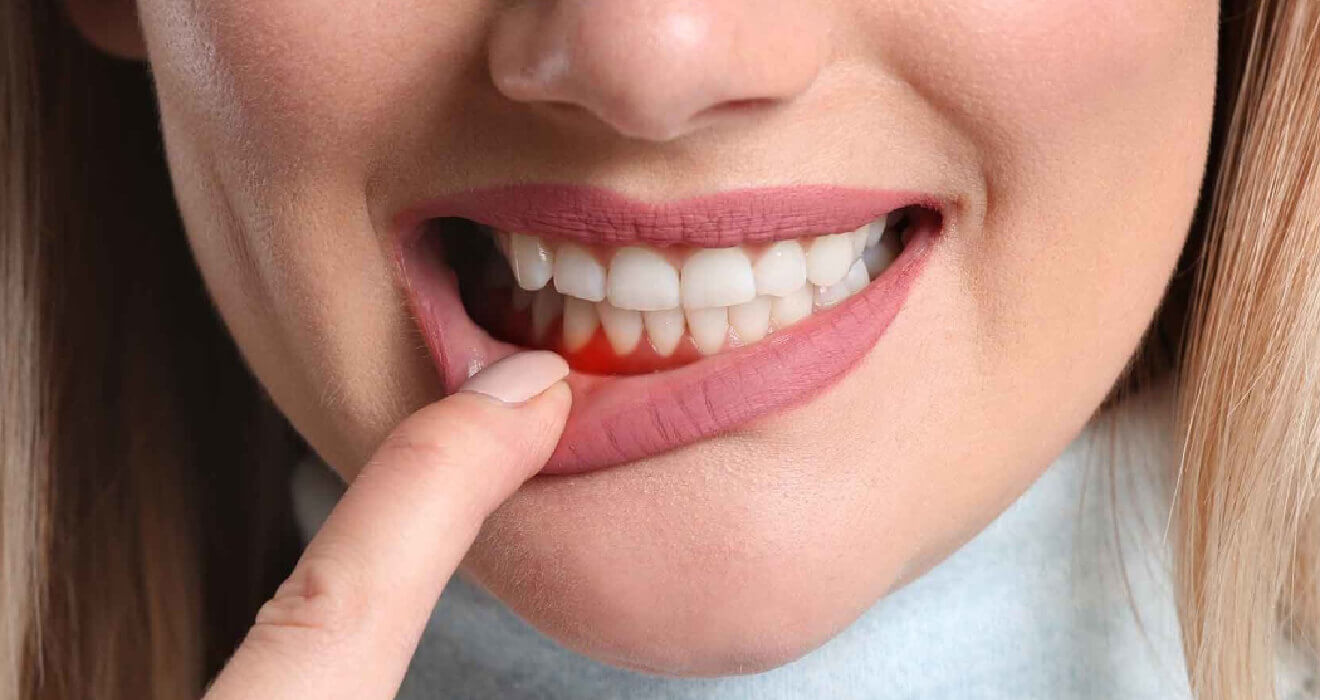
Did you know that your gums signify your dental health? Gum tissue also known as gingival tissue serves as a barrier to protect teeth and underlying bone. If your gums are inflamed and bleed easily, it could be a sign of gum disease. Gum therapy is a treatment method for gum disease. As mentioned previously, gum disease symptoms include bleeding, sore gums, and bad breath. Gum disease is called gingivitis when it only affects the gums (soft tissue) around the teeth. Periodontal disease is the advanced stage when the damage is more severe and spreads to the bone around the teeth. If left untreated can result in significant loss of the bone that holds your teeth in place, which can eventually lead to tooth loss.
Who needs gum therapy?
Gum disease is caused by bacteria. Plaque is a sticky film that contains bacteria and it forms on the teeth after a few hours of brushing. Toxins released by bacteria present in plaque damage the teeth and gums. When this happens, the gum tissue pulls away from the teeth, forming tiny pockets that can trap bacteria. These pockets, if left untreated, can lead to periodontal disease, which can lead to tooth and bone loss. If minor gum disease is detected early enough, professional scaling may be sufficient to prevent it from causing damage to structures beneath the gum line. However, your dentist in Edmonton may suggest gum therapy if pockets have already formed.
Types of Gum therapy
The goal of Gum therapy is to promote gingival health, reduce the swelling and pocket depth around the teeth, control the infection and stop disease progression. Gum therapy can be: Nonsurgical and Surgical.
Non-surgical Gum therapy: Non-surgical periodontal therapy is the removal of plaque and calculus from above and below the gum line. It may also include oral medications and rinses to kill bacteria and aid in gum and bone healing. Non-surgical treatment includes scaling and Root planing. During scaling and root planing your dentist removes harmful plaque and tartar that has formed around teeth and gums. Any rough spots on the tooth root are made smooth (planing). Smoothing the rough spots removes bacteria and provides a clean surface for the gums to reattach to the teeth. Depending on your gingival health your dentist can recommend you the frequency of scaling appointments.
Surgical Gum Therapy: Surgical Periodontal Therapy is the re-contouring of gum and bone to decrease the risk of further periodontal disease. Surgical procedures are designed to either remove diseased gum and bone for better cleaning access or to build missing tissue back to a healthier state. Types of surgeries are: Flap surgery. Gingival graft, Bone grafts, Guided tissue regeneration. Your periodontist will evaluate whether you will benefit from surgery or not.
How do you maintain healthy teeth and gums?
Brush your teeth twice a day with an electric toothbrush or a soft-bristled toothbrush.. You should also floss regularly and eat a healthy, balanced diet that includes plenty of fruits and vegetables. You should also refrain from using tobacco products and limit your alcohol consumption. It’s critical to see your Edmonton dentist regularly to keep your teeth clean and look for new pocket formation signs. This is particularly important because early intervention can help you avoid the need for future gum therapy.
What happens after gum therapy?
- Care at home – It’s critical to remove soft plaque and bacteria from your teeth regularly. It is recommended to use a soft toothbrush after the treatment.
- Gum care should be done every three months – Dental visits are necessary to keep your gums and bones healthy. Your hygienist will examine your gums again, treat them, and go over home care instructions. Returning for your recommended follow-up steps will help you avoid the need for gum therapy in the future.
Unfortunately, gum disease and periodontal infections are typically asymptomatic and can go unnoticed for years. However, red or inflamed gums, bleeding gums when brushing or flossing, and persistent bad breath are all signs of gum disease. To know more about gum therapy and if you are a good candidate for gum therapy, visit My Family Dental. Call us at 780-937-3737 to book an appointment. We would be happy to accommodate you!
